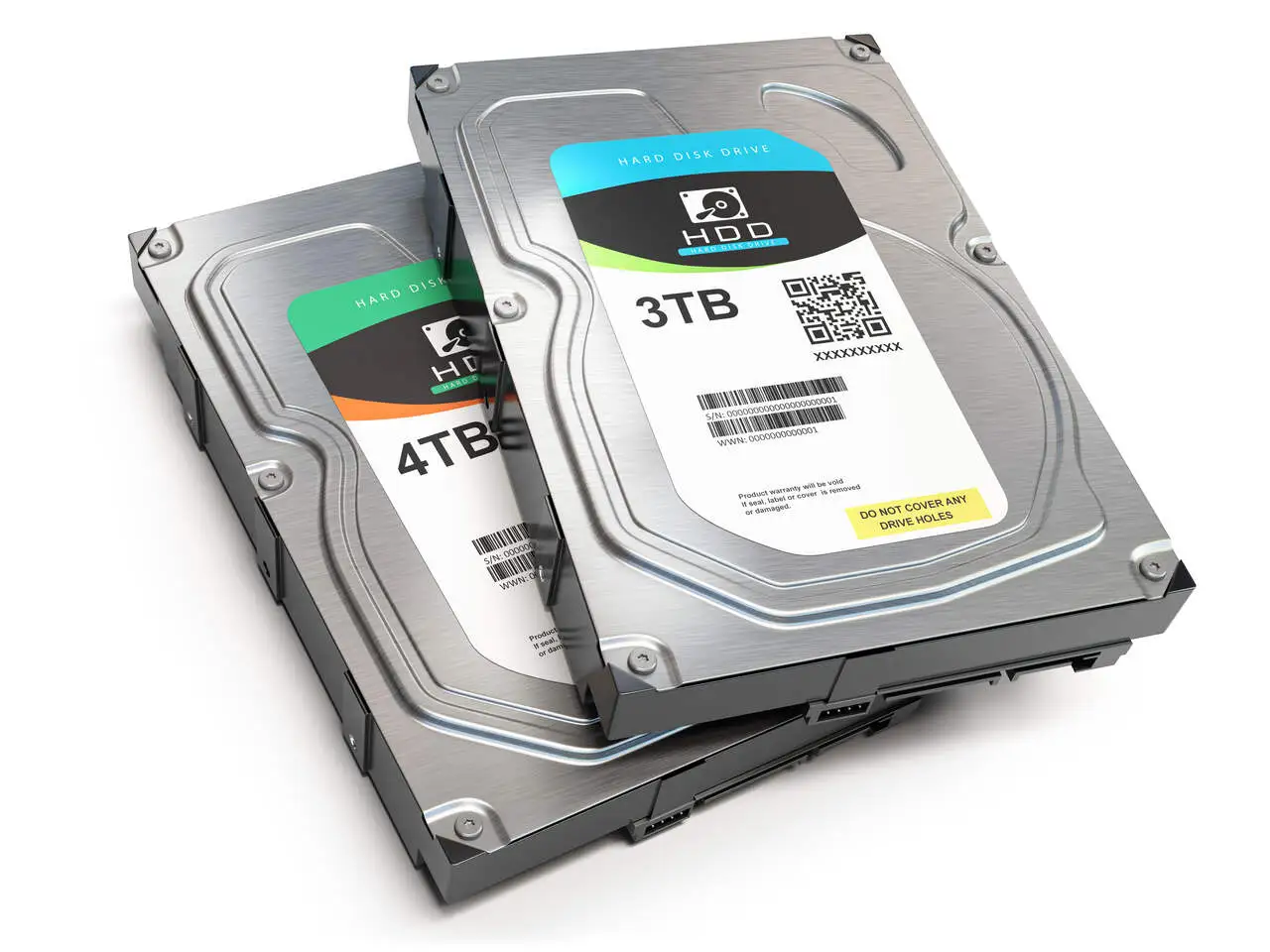Hard Disc Drives (HDDs) are essential components for both desktop computers and servers, but there are significant differences between them in terms of design, performance, capacity and reliability. These differences reflect the specific environments and requirements for which they are designed.
As the amount of data generated and consumed grows exponentially, choosing the right type of hard disk (HD) to store this information becomes increasingly critical. Hard drives are the backbone of data storage, both for individual users in desktop environments and for organisations that rely on servers to manage and process large volumes of data.
Understanding the fundamental differences between desktop hard drives and server hard drives is essential to ensuring that data not only remains safe, but is also accessible and reliable when needed.
So let’s compare the main points between the two hard drives.
1. Purpose and Use
– Desktop Hard Drives: These are designed for personal or business use in desktop computers. They are optimised to offer a good combination of performance and capacity at an affordable cost, suitable for tasks such as office operations, web browsing, gaming and personal media storage.
– Server Hard Drives: These are developed to meet the demands of 24/7 server environments, supporting intensive read and write operations. They are designed to be more reliable, durable and offer greater performance under heavy and continuous workloads, essential in data centre environments, file servers, and critical business applications.
2. Performance and Reliability
– Desktop Hard Drives: They have a balance between performance and cost. They may not be designed to operate 24 hours a day, 7 days a week, and tend to have a higher failure rate in intense continuous use compared to server hard drives.
– Server Hard Drives: These are built with higher quality components that can withstand continuous use and demanding operations. They have much lower failure rates (MTBF – Mean Time Between Failure) and generally include features such as vibration tolerance and advanced error correction technologies to guarantee data integrity.
3. Capacity and Speed
– Desktop Hard Drives: Offer a wide range of capacities, suitable for most home users and small offices. Speeds are optimised for general computing tasks, but may not cope well with multiple I/O-intensive operations.
– Server Hard Drives: These are designed to offer very high capacities and higher rotation speeds (e.g. 10,000 to 15,000 RPM) compared to desktop hard drives (usually 5,400 to 7,200 RPM). This allows faster access to data and support for a greater number of I/O operations per second.
4. Cost
– Desktop Hard Drives: These are generally more affordable, reflecting the compromise between performance and cost. They are ideal for users who need additional storage at a reasonable price.
– Server Hard Drives: Due to their superior construction, reliability and performance, they tend to be more expensive. The additional investment is justified for companies and applications that require high availability and reliability.
5. Storage Technologies
Both types of hard drives can utilise advanced storage technologies such as SATA (Serial ATA) and SAS (Serial Attached SCSI). Desktop hard drives typically use SATA interfaces, which are suitable for most end-user applications due to their good performance and cost-effectiveness. Server hard drives often use SAS, which offers greater speed, reliability and support for a larger number of daisy-chained devices, essential for enterprise and server environments.
The choice between a desktop hard drive and a server hard drive should be based on specific usage needs, required reliability and available budget. While desktop hard drives serve most users and small businesses well, server hard drives are indispensable in environments that require high availability, performance and 24/7 data integrity.
In the event of data loss on any of these hard drives, you can count on Digital Recovery’s solutions for hard drive recovery.



